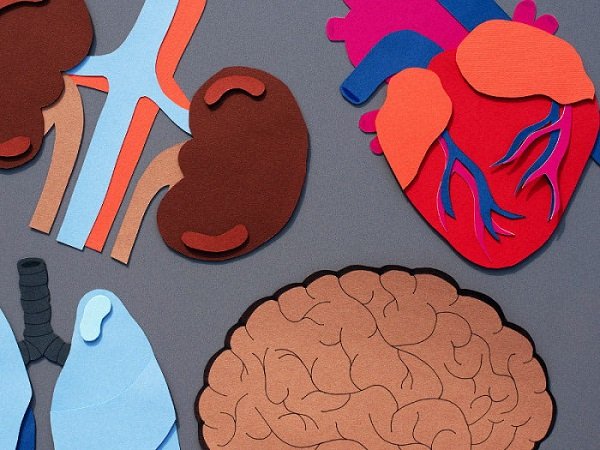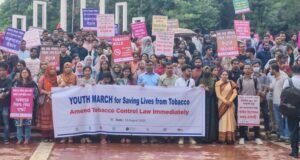
It’s easy to be complacent about COVID-19. Most people experience only mild issues – fever and coughing, maybe congestion and shortness of breath.
But the coronavirus is capable of causing much more than a simple respiratory illness, affecting organs throughout the body, experts say.
“We see people have symptoms from almost head to toe in terms of how they feel, how they function and what they can do,” said Dr. Adrian Hernandez, a cardiologist who is director of the Duke Clinical Research Institute in Durham, North Carolina, reports AP.
The new year started with an increase in COVID-19 hospitalizations in the U.S., prompting Hernandez and other experts to advise caution, especially for those at high risk.
While the short-term effects of COVID-19 can be flu-like, even mild cases can lead to long COVID – a constellation of problems that can persist for weeks or months. More than 200 symptoms have been linked to long COVID, said Hernandez, who has overseen many COVID-19 studies.
Because COVID-19 typically affects breathing and can lead to problems such as pneumonia, many people may think it’s primarily a lung disease. It’s not that simple, said Dr. Nisha Viswanathan, director of the long COVID program at the David Geffen School of Medicine at the University of California, Los Angeles.
“I would argue that COVID-19 is not a disease of the lungs at all,” she said. “It seems most likely that it is what we call a vascular and neurologic infection, affecting both nerve endings and our cardiovascular system.”
It’s no surprise that experts say SARS-CoV-2 – the name of the virus that causes COVID-19 – is complex, with many of its pathways just beginning to be understood. But some things are becoming clear. One of the best reviews of long COVID symptoms, Viswanathan said, appeared last January in Nature Reviews Microbiology. It detailed the disease’s effects throughout the body, including the pancreas, blood vessels and reproductive system.
“SARS-CoV-2 is excellent at triggering your immune system to go from zero to 100,” said Dr. Lindsay McAlpine, a neurologist who is director of the Yale NeuroCovid Clinic in New Haven, Connecticut. That revving of the immune response leads to both a “wide swath of inflammation” and excessive blood clotting, she said.
“Perhaps the viral replication is going on in the lungs and nasopharynx (the area at the top of the throat that connects the nose to the respiratory system). But the inflammation that the virus triggers is systemic,” McAlpine said.
Here are some parts of the body significantly affected by COVID-19.
The brain and nervous system
“The virus and the immune response can have several different effects on the brain,” said McAlpine, lead author of a 2021 study looking at strokes in people with COVID-19, published in the journal Stroke. She is researching issues related to COVID-19 and brain fog, which she called “a very common symptom.”
The exact causes of brain-related issues are not clear, but she said it does not appear that the virus is directly attacking brain tissue. Rather, it seems that the ramped-up immune response leads to clots that could cause brain problems.
“A lot of patients have described it as feeling like they have a concussion,” McAlpine said. “And it can persist for several months after COVID,” even if the initial case was mild.
“In addition to the cognitive impairment, we see worsening or new-onset migraines,” she said. “We see new neuropathy in the legs and the arms – numbness, tingling, difficulty walking because of the neuropathy.”
COVID-19 might also be unmasking other neurodegenerative conditions, such as Parkinson’s disease, she said. McAlpine has diagnosed new cases of Alzheimer’s disease in people who, before COVID-19, were functioning fine, then developed symptoms. “We don’t know why,” she said.
The heart and blood vessels
Research shows COVID-19 infection can increase the risk for heart-related problems such as myocarditis, a rare inflammation of the heart, and an irregular heartbeat known as atrial fibrillation.
The risk of dangerous clotting – including deep vein thrombosis (clots in large veins) and pulmonary embolisms (clots in the lungs) – is small but stays elevated for up to a year after the infection, according to research done before vaccines were available.
Many factors might be playing into COVID-related heart problems, Viswanathan said, including microclots – tiny blood clots – or an autoimmune response targeting heart muscle cells. A recent study in Nature Cardiovascular Research shows the virus may infect coronary arteries, causing plaque buildup to become inflamed and break off, which can lead to a heart attack. Gastrointestinal system
“Interestingly, the GI system’s mechanism may be a little different than what impacts the heart,” Viswanathan said. One theory suggests that the virus finds a hiding place while the rest of the body fights it off. “And we have found now in multiple studies that COVID can remain in our GI tract for weeks and months after it has resolved in the rest of the body.”
The exact place where the virus might hide is up for debate, Viswanathan said. But Hernandez said gastrointestinal symptoms are clear: “People can have nausea, vomiting, diarrhea.”
A large study of veterans published last year in Nature Communications found people with COVID-19 had a higher risk of gastroesophageal reflux disease, irritable bowel syndrome and other gastrointestinal problems more than 30 days after infection compared to people without COVID-19. The risk was elevated even among people who had mild cases of the disease.
Kidneys
Kidney problems were common in a 2023 study published in The Lancet Respiratory Medicine that looked at organ damage after COVID-19 infection.
Researchers don’t necessarily know whether kidney problems stem from people getting sick with high fevers and taking in less fluid or because “with a virus that can go anywhere and cause inflammation anywhere, you can have all sorts of problems,” Hernandez said.
What to do
Not everyone who gets COVID-19 will have these problems, Viswanathan said. But people experiencing symptoms can reach out to their primary care physician or a long COVID clinic.
What everyone can do, she said, is take steps to protect themselves and those around them.
The first step is to be cautious if COVID-19 is surging in your area. Consider wearing a mask in crowded public places. “A lot of people have COVID now, and it may take a while for them to test positive,” Viswanathan said.
“The second thing is get vaccinated,” she said. “It really does seem to be highly protective.” The Centers for Disease Control and Prevention recommends everyone ages 5 and older get the updated COVID-19 vaccine to avoid getting seriously ill from the virus.
“The third thing is controlling your cardiovascular risk factors,” she said. That means getting high blood pressure, diabetes or other chronic medical conditions under control. “It will all decrease your risk.”
McAlpine added that if you have COVID-19 symptoms, stay away from other people to avoid putting them at risk.
Hernandez emphasized the importance of vaccinations in general for people with heart or lung disease, cancer or suppressed immune systems. “For people who have other health conditions, you don’t need another one,” he said. “And if you could avoid an illness like COVID or the flu – why wouldn’t you?”
 Weekly Bangla Mirror | Bangla Mirror, Bangladeshi news in UK, bangla mirror news
Weekly Bangla Mirror | Bangla Mirror, Bangladeshi news in UK, bangla mirror news







